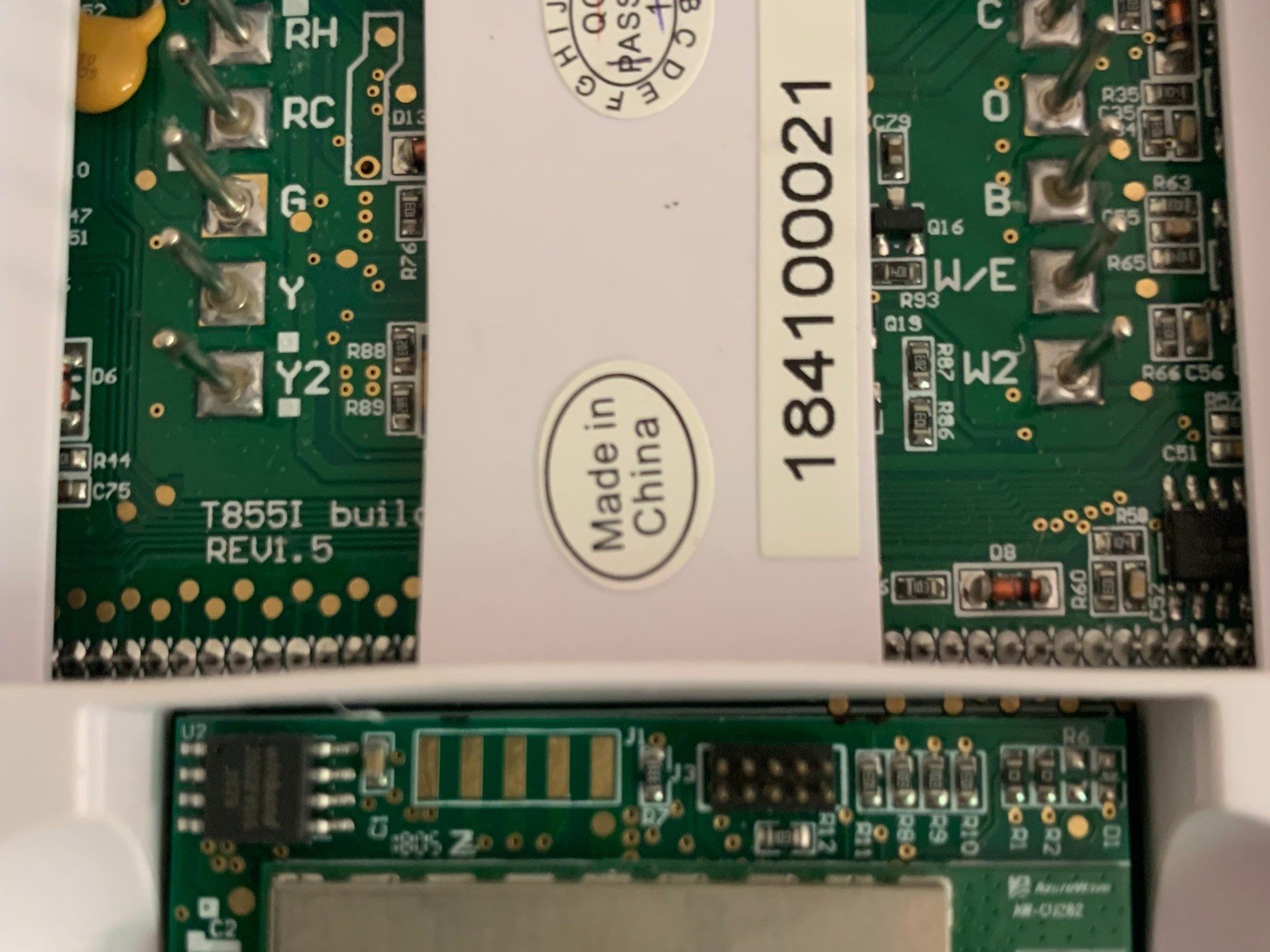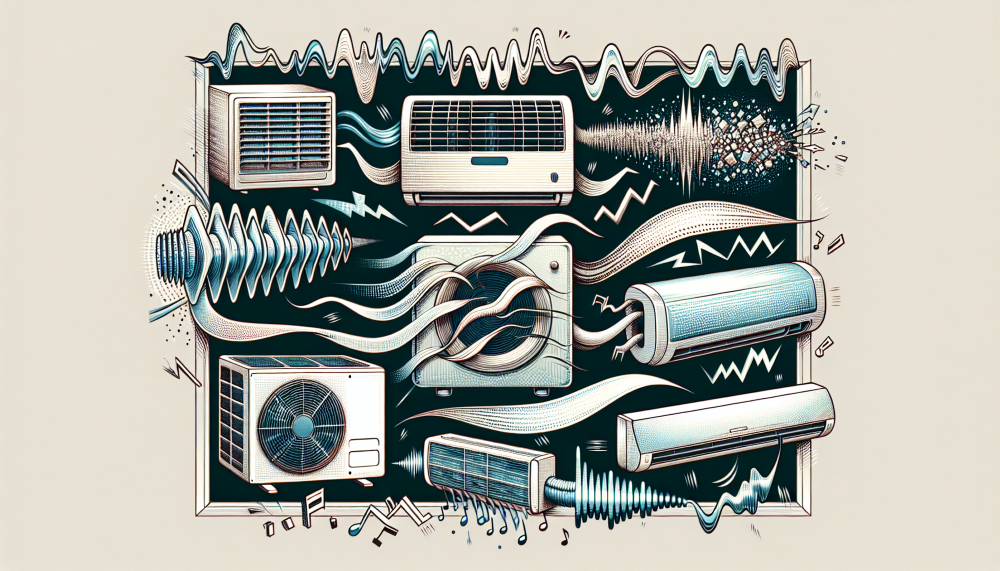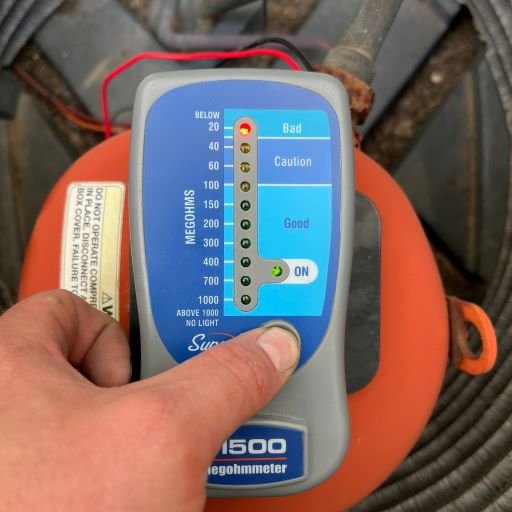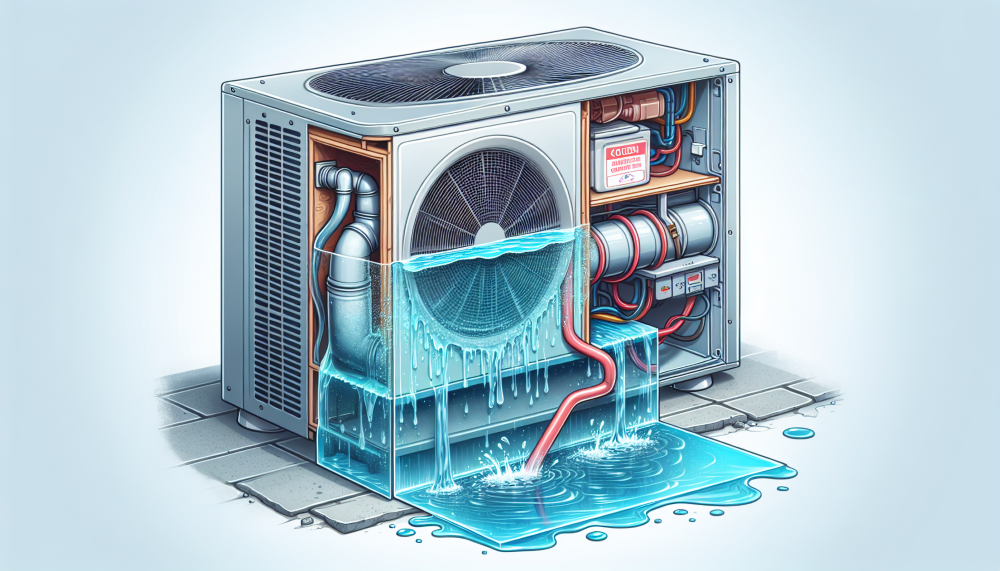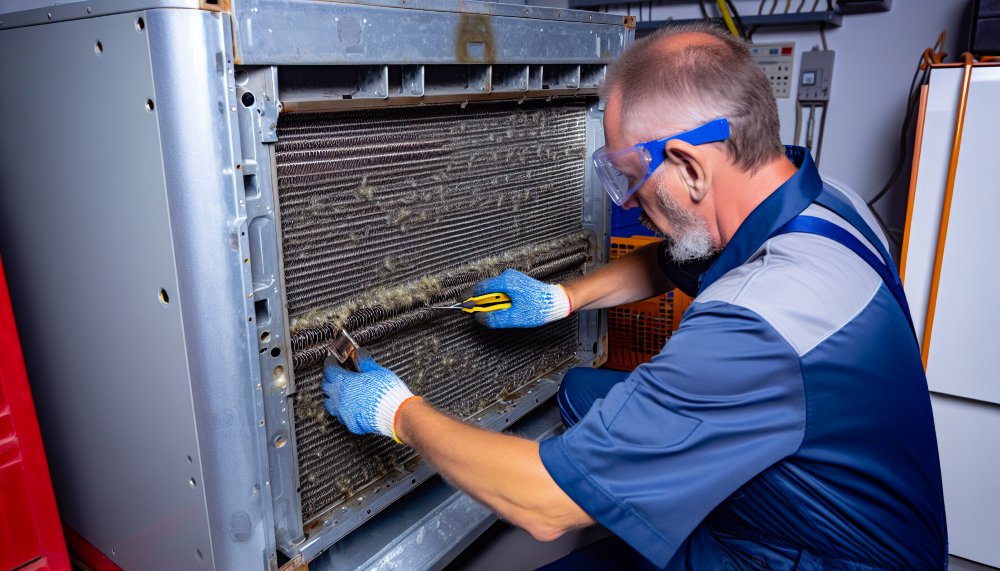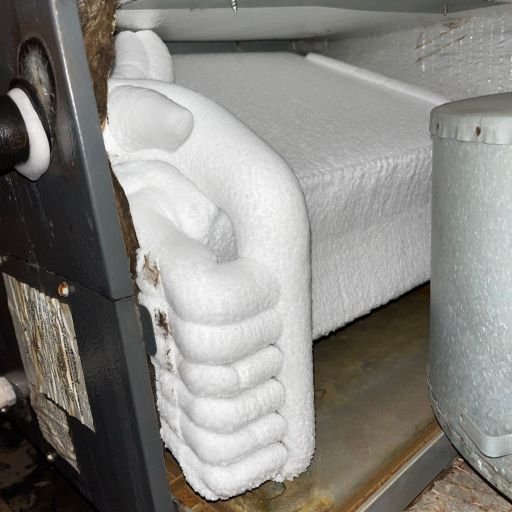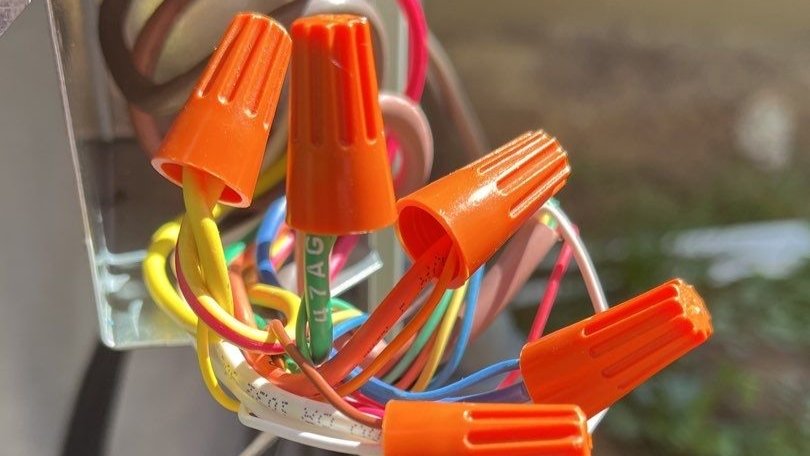Why Is My AC Blowing Hot Air?
Top Troubleshooting Tips to Cool Down Fast
If your AC is blowing hot air, you’re likely wondering “Why is my AC blowing hot air?” and how to fix it quickly. The reasons can be manifold—from simple settings gone awry to complex mechanical failures. This article cuts through the confusion to explain the top reasons and solutions, aiming to restore your cool without delay.
Key Takeaways
If your AC’s blowing hot air, double-check your thermostat settings and ensure it’s on ‘cool’ mode, the fan is set to ‘auto’, and the temperature is around 75 degrees for optimal efficiency.
Change your air filters every 1-3 months to prevent clogging and maintain good airflow, which helps prevent your AC from blowing hot air and keeps energy costs down.
Routine maintenance, like cleaning your AC’s evaporator coils and ensuring your unit has no refrigerant leaks, can prevent hot air issues and extend the life of your AC system.
Thermostat Misconfigurations
Ever thought the solution to your AC blowing warm air might be right at your fingertips? It’s true! A simple misconfiguration of your thermostat could be causing your AC to blow warm air in ‘heat’ mode rather than ‘cool’, leading to those unpleasant gusts of hot air. In fact, when your AC is blowing warm, it’s easy to overlook the thermostat settings, especially during seasonal changes or when little hands find their way around the controls.
Checking Thermostat Mode
So, how do you make sure your thermostat isn’t pulling a fast one on you? First, ensure it’s set to ‘cool’ mode. If it’s accidentally switched to ‘heat’, your AC will not be your best friend during those hot summer days. Also, keep the fan setting on ‘auto’. This way, the fan won’t run continuously, which can lead to your AC blowing warm air.
Adjusting Temperature Settings
Next, check your temperature settings. Your AC cools the air in increments of 15 to 20 degrees, and lowering the temperature on your thermostat won’t speed up this process. It merely signals the AC to work until the room reaches the set temperature.
A comfortable setting for most is around 75 degrees, which keeps your AC efficient and prevents it from overworking.
Dirty or Clogged Air Filters
Ever noticed how water struggles to flow through a clogged drain? Well, the same principle applies to your AC. If the air filter is dirty or clogged, the airflow reduces, making it harder for your AC to cool the air. This can lead to more severe issues, like compressor fan malfunctions or compromised evaporator coils.
What’s more, a dirty air filter can even lead to electrical issues due to increased energy consumption.
Impact on Airflow and Efficiency
A clogged air filter makes your AC work harder, decreasing its efficiency and leading to uncomfortable hot and cold spots in your home and affecting the circulation of cold air. It can also lower your indoor air quality by failing to remove dust and allergens.
And if that wasn’t enough, it can even contribute to higher energy bills by obstructing your air ducts and return vents.
Replacing Air Filters
So, what can you do to avoid these issues? Check and replace your air filters regularly! This simple act can significantly improve your home’s air quality and extend the lifespan of your AC unit. Filters should be replaced every 1-3 months, depending on factors like the presence of pets. And remember, a clogged filter can lead to unpleasant odors and even bacterial contamination, so always opt for the correctly sized and recommended type.
Frozen or Dirty Evaporator Coils
Imagine trying to cool a drink with a frozen ice pack that’s covered in a thick layer of dirt. It’s not very effective, right? The same applies to your AC’s evaporator coils. If they’re frozen or dirty, they can’t cool the air properly, leading to your AC blowing hot air.
But don’t worry, there are ways to troubleshoot and fix these issues.
Causes of Coil Issues
Frozen evaporator coils often indicate inadequate refrigerant flow, which can be due to a lack of refrigerant from leaks or a clogged air filter. Furthermore, refrigerant leaks can occur due to corrosion of copper tube walls inside the evaporator coil, forming cracks and holes that allow refrigerant to escape. Understanding these common causes can help you prevent and resolve coil issues.
Cleaning and Maintenance
Keeping your evaporator coils clean can prevent many of the issues associated with them. This includes:
Checking and cleaning them yearly to prevent reduced airflow and heat absorption capacity
Cleaning should begin with using a soft brush and compressed air
Followed by a safe cleaning foam
If the coils are frozen, a technician may allow the ice to melt, avoiding any forceful methods that could damage the coils. It’s important to maintain these coils’ integrity and performance through regular cleaning.
Refrigerant Leaks
Refrigerant leaks can be a hidden culprit behind why your AC is blowing hot air. Not only do they decrease your AC’s cooling efficiency and drive up energy costs, but they can also pose serious health risks, such as headaches, breathing difficulties, and even skin or eye irritation. Moreover, they also contribute to environmental issues like ozone depletion and global warming.
These leaks can occur due to a variety of reasons, like improper installation, weakened joints and connections, and even undetected defects from manufacturing.
Identifying the Leak
But how do you know if you have a refrigerant leak? Well, if you hear hissing or gurgling sounds from your indoor unit, that can be a sign. A tripped circuit breaker or ice accumulation on the evaporator coils could indicate a refrigerant leak or other severe issues.
Professional Repair
If you suspect a refrigerant leak, it’s crucial to call in a professional HVAC technician. These leaks can be complex and require expert diagnosis and repair. Technicians use specialized tools to find and fix these leaks and can properly recharge the system with the correct type and amount of refrigerant.
It’s always better to be safe than sorry, so make sure to call a professional if you suspect a significant refrigerant leak.
Electrical Problems
Just like a car that won’t start due to a dead battery, your AC might be blowing hot air because of electrical problems. Some possible causes include:
The outdoor unit losing power, especially if it’s not affecting the indoor unit
The condenser fan stopping due to overheating in hot weather
These issues can prevent your AC unit from cooling as intended and may require troubleshooting to fix.
Troubleshooting Circuit Breakers
But don’t panic just yet! You can do some troubleshooting yourself. Here are the steps to follow:
Turn off your AC unit at both the thermostat and the circuit panel for safety.
Let your AC unit cool down for about 5 minutes.
Reset the breaker by flipping it back to the on position.
If the breaker trips again after a reset, this could indicate an ongoing issue within your AC system that needs further investigation.
When to Call a Professional
If you’ve tried resetting the breaker and your AC is still blowing warm air, or if the breaker trips again, it’s time to call a professional. Other signs that you need expert help include heat, a burning odor, or burn marks on the circuit breaker. If your AC persistently trips breakers or shows signs of wiring problems, you’ll need a licensed HVAC technician to handle the issue properly.
Blocked or Closed Return Vents
If your AC is blowing hot air, the problem might not be with the unit itself. Instead, your return vents could be the culprits. If these vents are blocked or closed, it results in reduced airflow and poor system performance, preventing the AC from being able to blow cool air and even blowing cold air. To fix this issue, ensure that your return vents are clear and open, allowing the system to circulate cool air effectively.
But don’t worry, there’s a quick fix for this!
Identifying Vent Issues
Identifying blocked or closed return vents is fairly simple. Look out for signs like fast and heavy dust accumulation, reduced airflow from vents, or temperature variances between different rooms.
The presence of a dust cloud when the HVAC system turns on or excessive dirt inside the duct when the air vent cover is removed are clear indications of dirty or clogged return vents.
Clearing Obstructions and Opening Vents
To improve airflow and AC performance, follow these steps:
Ensure that furniture or other objects do not block the air vents.
Maintain at least a foot of space for unobstructed airflow.
For clogs not visible or reachable from the outside, enlist a professional HVAC technician equipped with specialized tools or methods to extract stubborn blockages.
Engage in preventive maintenance by regularly vacuuming around vents and ensuring all household members know the importance of keeping return vents clear.
Condenser Fan Malfunctions
The condenser fan plays a crucial role in dissipating heat from the refrigerant. So, if it malfunctions, it can lead to your AC blowing hot air. But what causes these malfunctions?
Causes of Fan Malfunctions
Condenser fan malfunctions can be caused by:
Electrical issues, such as a tripped breaker due to the fan not working correctly
Capacitor problems
Contactor issues
A burnt-out motor
In older HVAC units, a loose or broken belt may cause the fan to stop working, indicating potential system aging that might require replacement.
Professional Repair and Maintenance
If you suspect your condenser fan is malfunctioning, it’s best to call in a professional. HVAC technicians have specialized training that allows them to:
Locate and repair or replace parts in a condenser fan system
Diagnose the issue accurately
Ensure proper installation and functioning of the fan
Avoid further damage and increased repair costs
Trying to repair it yourself can lead to further damage and increased repair costs, emphasizing the importance of professional assistance.
Technicians can also offer valuable maintenance insights and money-saving tips for the operation of your air conditioning system and other air conditioners.
When to Replace Your Air Conditioner
Sometimes, despite your best efforts, your AC might be beyond repair. Here are some signs that it might be time to consider a replacement:
Your AC unit is over 10 years old and might be less energy-efficient.
Repair costs exceed the price of a new one.
The age of your system multiplied by the repair costs is greater than $5,000.
If any of these signs apply to your AC unit, it might be time to start considering a replacement.
Signs of an Aging AC
So, what are the signs of an aging AC? Slow performance and an inability to maintain cool temperatures may indicate that your air conditioning unit requires expert inspection and potential replacement. Increased energy usage, reflected in higher electricity bills without a change in usage habits, can also be a sign that your AC unit is failing and might need replacement.
Annual Servicing
Even if your AC isn’t experiencing any of these issues, it’s crucial to schedule annual servicing with an HVAC professional. Routine maintenance can help maintain the lifespan and efficiency of your AC. Professional cleaning involving steam and chemical treatments may be necessary, especially if your AC has not been serviced for a few years.
Remember, prevention is better than cure!
Summary
In conclusion, there are several reasons why your AC might be blowing hot air. From thermostat misconfigurations and dirty air filters to refrigerant leaks and electrical problems, it’s important to identify and address these issues promptly. Regular maintenance and professional repair can help keep your AC in top shape and prevent costly replacements. And remember, when your AC blows hot air, it’s not the end of the world - it’s a chance to learn more about your system and make it more efficient!
Frequently Asked Questions
How do I fix my AC that blows hot air?
Try these 3 steps to fix your AC blowing hot air: check your thermostat and set it to "Cool," check your breaker or fuse box for any issues, and make sure to clean or replace your AC filter. These simple solutions can often resolve the problem.
Why is my AC not blowing cold air?
Your AC might not be blowing cold air because of dirty filters and coils. Try cleaning them and melting off any ice accumulation by running the fan only. If the issue persists, it could be due to low refrigerant levels.
Should I turn off the AC if it is blowing warm air?
Yes, you should turn off the AC if it's blowing warm air to prevent the coil from getting even warmer and causing potential damage.
How often should I replace my air filters?
You should replace your air filters every 1-3 months, especially if you have pets or live in a dusty area.
When should I consider replacing my AC?
You should consider replacing your AC if it's over 10 years old or if the cost of repairs exceeds the price of a new unit. It's likely time for a replacement.

